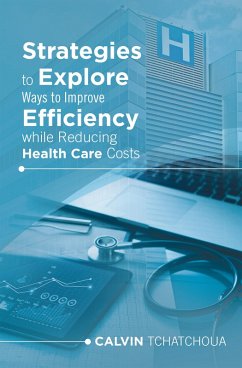It was my pleasure to work with Calvin on his Doctoral Study at Walden University from 2014 to 2018. According to the Institute of Medicine of the National Academy of Science (2012), the United States is the only industrialized nation in the world that does not have a universal healthcare system. Citizens in this country spend twice the amount of money on healthcare costs, while the quality of services is only ranked 31st in the world by the World Health Organization. By using system's theory, Calvin identified those factors that are directly and inversely related to healthcare costs. If these factors go up, healthcare costs go up; if they go down, healthcare costs go down. In Calvin's study, he documents and discusses that $667 billion dollars is wasted because we don't manage these factors efficiently. He then identifies factors that are inversely related to healthcare costs. If they go up, healthcare costs go down; if they go down, healthcare costs go up. This represents a total of $391 billion. To correct this problem, we need to improve efficiencies to reduce costs and we need to reduce inefficiencies to lower costs with evidence-based practices that work (see Figure 3 on page 98). If only half of these issues were successfully worked on, hospital costs could be reduced by $500 billion. We would have enough funding to make certain that every person in the United States could have fully funded healthcare insurance (Gossett, et al., 2019). This is a book that is well-worth reading. -Kenneth D. Gossett, Ph.D. May 6, 2022
Dieser Download kann aus rechtlichen Gründen nur mit Rechnungsadresse in A, D ausgeliefert werden.









